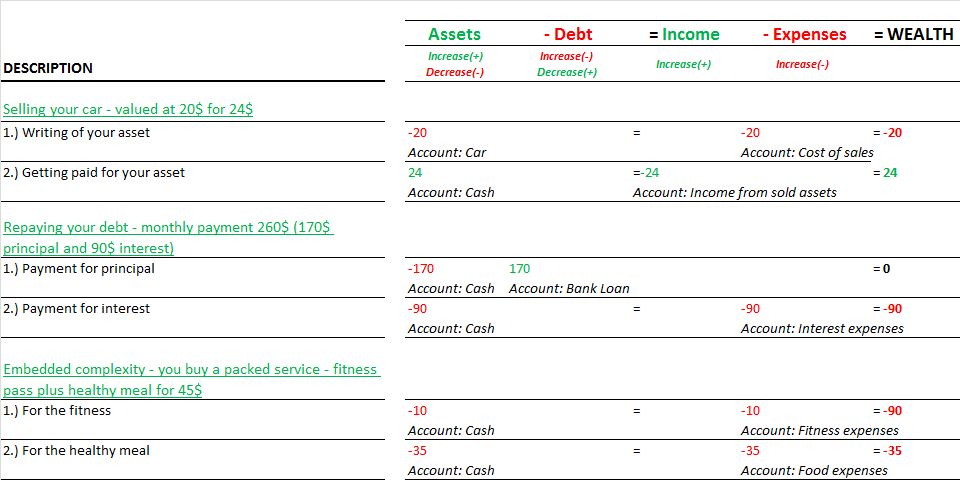Ann: What would the perfect accountant look like?
Garret: Something like me…. But remember, I am much more than a perfect accountant.

Sarah: Of course you are, Garret. But what about a boring geek, who makes sophisticated calculations only he himself understands?
Garret: I am thinking of complex, untraceable transactions.
Thomas: Yes, the strength of an accountant is in his ability to design and record such complicated transactions.
Sarah: But how sophisticated could a single transaction be, from an accounting perspective?
Thomas: A transaction’s complexity depends on the economic consequences the transaction will have. It may initially appear simple – but only when you get into it more deeply can you discover all its effects on your wealth, and determine its complexity. The most common complex transactions include:
- Selling. This may sound simple, but selling assets actually involves two components. The first is writing off the asset sold; the second is getting paid for it. Selling services, on the other hand, is not a complex transaction. Delivering the service does not have impact on your balance sheet; only the associated money inflows do.
- Repaying debt. The greedy bankers advertising debt are the worst of all; they are molding or manipulating your perceptions about debt. Most consumer loans (leases, etc.) are structured so that you have no idea how much interest you are paying – you focus instead on what your monthly payment will be. This is misleading, since they are persuading you to mix two totally different things, both of which affect your financial position: outstanding principal, and interest expenses. The important thing to remember is that your loan monthly payment has principal and interest components. You must account for both components separately in order to see your true financial position.
- Embedded complexity. Salesmen think of all kinds of ways to sell you their products and byproducts (overloading you with inventory). This kind of thinking has led to sophisticated sales agreements, multiple goods and services packaged together in one offer, “all-inclusive” deals and so on. So, when you buy, always consider all the things you are acquiring. Then try to enter each thing in your books separately, if this is important to your financial position, and you can legitimately do so in practice.
Examples:

The essence of this chapter: Break down every complex transaction into a few simple transactions.
Some questions for you:
- Is your usual shopping at the supermarket a complex transaction?
- How much did you pay in interest last year?